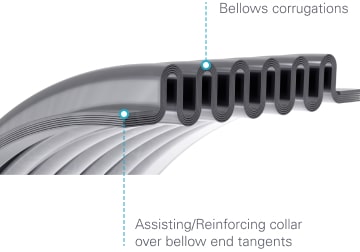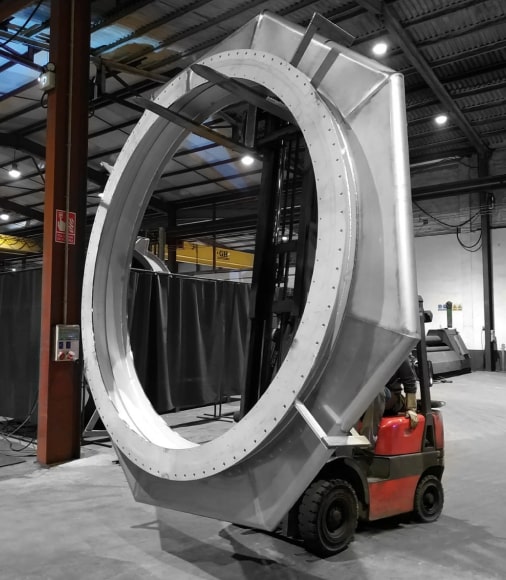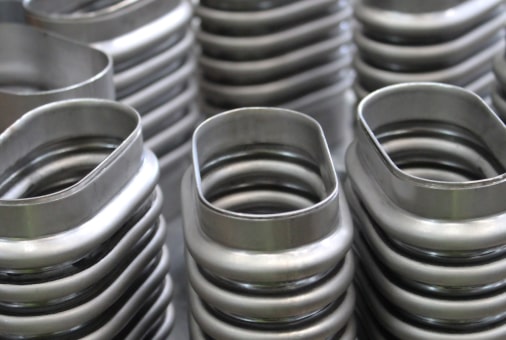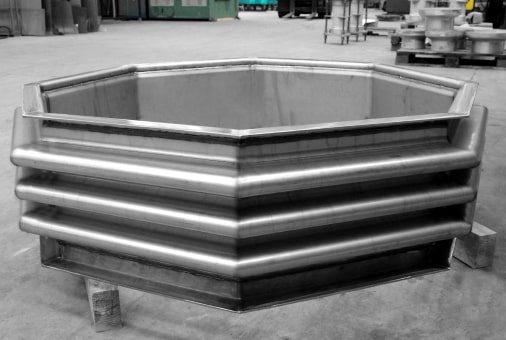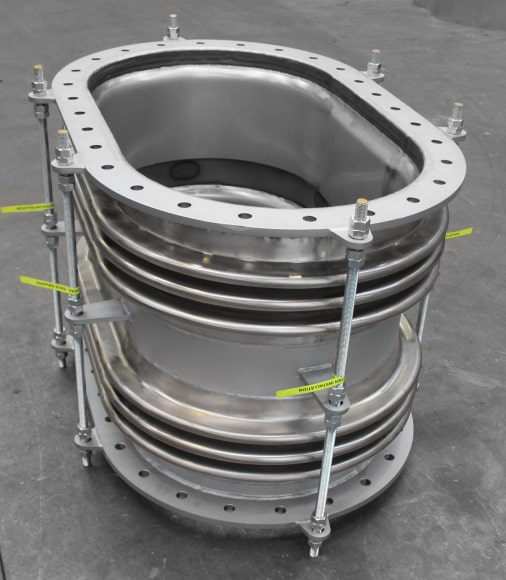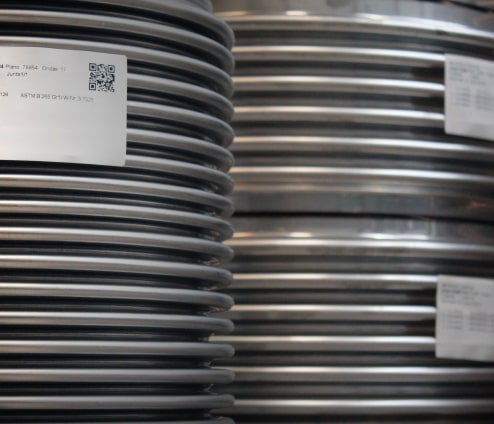
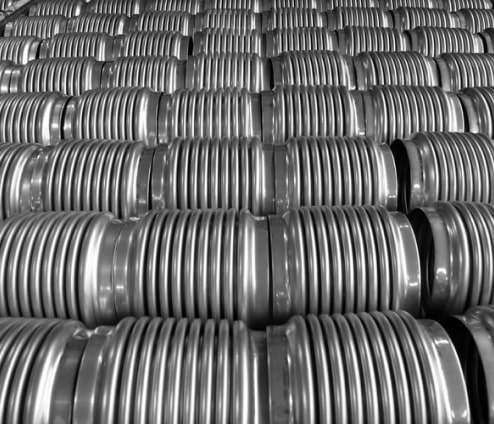
Main features of MACOGA Metal Bellows
- From 15 mm up to 10 meters diameter
- Single ply or Multiply construction
- Reinforced and unreinforced
- Available in austenitic stainless steel, duplex, nickel alloys, low alloyed steels, titanium,
- carbon steel, etc.
Main parts of metal bellows
Corrugation or convolution
Flexible unit of a bellows with a leakproof wall consisting of one or more plies. Ply element of the bellows’ wall usually made from sheet or strip material.
End tangent
Straight un-corrugated portion at the ends of a bellows.
Assisting and reinforcing collar
Ring placed around the end tangents for reinforcement and to facilitate welding.

